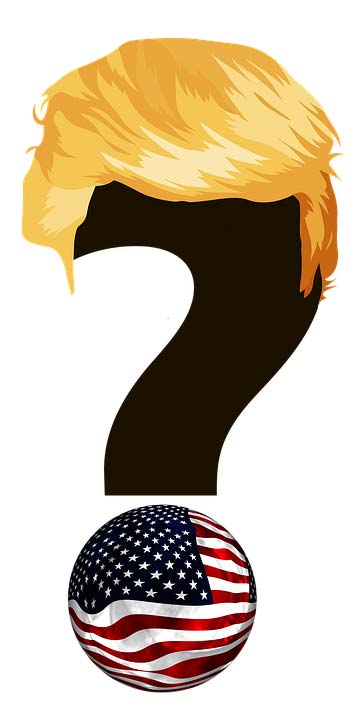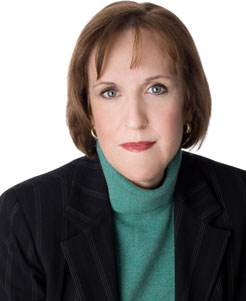
Sign up for the daily JWR update. It's free. Just click here.
It used to be pretty easy to name a handful of principles that defined and united American conservatives: lower taxes, unfettered trade, smaller government and keeping that government's hand out of private businesses.
In ways big and small, President Donald Trump has scrambled those fundamental propositions.
Trump's domination of the Republican Party has allowed him leeway for a host of apostasies. He's setting the stage, however, for what could be an epic battle over conservatism's direction once he is off the scene. Will this turn out to be a temporary phase and a reflection of one man's predilections, or a permanent redirection of the movement?
"I'm a Trump guy. I love most of the things Trump is doing," said Stephen Moore, an economist who co-founded the anti-tax, anti-deficit Club for Growth. But he added, "A lot of people are very concerned about where this is headed."
Trump's positions on some issues - tax cuts and deregulation being two examples - continue to unify conservatives. But his heavy-handed use of executive power represents a far cry from the days of the post-Ronald Reagan era when activist Grover Norquist declared that the right's goal was to shrink the government "to the size where I can drag it into the bathroom and drown it in the bathtub."
Front and center is Trump's long-standing affinity for tariffs, which the president sees as more than a negotiating tool in matters of trade. Last week, for example, a 50 percent levy went into effect on imports from India as punishment for its buying of Russian oil.
Front and center is Trump's long-standing affinity for tariffs, which the president sees as more than a negotiating tool in matters of trade. Last week, for example, a 50 percent levy went into effect on imports from India as punishment for its buying of Russian oil.
Front and center is Trump's long-standing affinity for tariffs, which the president sees as more than a negotiating tool in matters of trade. Last week, for example, a 50 percent levy went into effect on imports from India as punishment for its buying of Russian oil.
He has also used tariffs to employ a brand of industrial policy against which conservatives have held a long-standing antipathy.
In May, the president said he would put a tariff of 25 percent or more on iPhones unless Apple manufactured and built them in the United States - a move that could increase their price to as much as $3,500. Earlier this month, Apple CEO Tim Cook appeared with the president at the White House to announce that his firm would spend about $600 billion over four years in the U.S.; Trump declared that Apple would be exempt from the 100 percent charge he is threatening to place on computer chips imported to the United States.
So submissive have U.S. companies become to Trump's desires that, just hours after the president joined the right-wing criticism that was raging last week on social media about the new, sleeker logo of the roadside restaurant chain Cracker Barrel, the company announced it was returning to its original design featuring an overall-clad mascot.
Cracker Barrel also made sure the White House knew it had taken the Trump's wishes into account in making the decision. "I appreciated the call earlier this evening with @CrackerBarrel. They thanked President Trump for weighing in on the issue of their iconic 'original' logo," Deputy White House Chief of Staff Taylor Budowich wrote on X.
And last month, Coca-Cola announced that it would launch a version of Coke made with American cane sugar, days after Trump posted on his Truth Social platform that he had persuaded the company to do so.
Nothing Trump has done thus far has brought such shudders from free-market conservatives as his recent announcement that the federal government would convert billions of previous funds and pledges into a 10 percent stake in struggling Silicon Valley chipmaker Intel - a deal making it one of the company's biggest shareholders. That came about after Trump called for the resignation of Intel's chief executive, Lip-Bu Tan, making an unsubstantiated allegation on social media that Tan was "highly CONFLICTED."
"If socialism is government owning the means of production, wouldn't the government owning part of Intel be a step toward socialism?" Sen. Rand Paul (R-Kentucky) asked in a post on X.
His colleague Sen. Bernie Sanders (I-Vermont) - who actually identifies as a democratic socialist - hailed Trump's move: "Taxpayers should not be providing billions of dollars in corporate welfare to large, profitable corporations like Intel without getting anything in return."
Trump has portrayed those who object to his move as "stupid people," and promised, "I will make deals like that for our Country all day long." On Monday, he told reporters: "I want to try and get as much as I can."
Commerce Secretary Howard Lutnick has said the administration is indeed looking for more private companies in which to acquire an ownership position, especially in the defense industry, where Lutnick identified Lockheed Martin as a potential target.
And the administration is finding other ways to demand a government cut from U.S. businesses. In a deal brokered by Trump, chipmakers Nvidia and AMD agreed to pay the federal government 15 percent of their revenue from selling to Chinese customers, after the Commerce Department in April had cited national security concerns in blocking the sales.
It is not unprecedented for the government to take equity positions in private companies in a crisis, as it did with some banks and automakers during the financial meltdown of 2008 and 2009. But Trump officials are portraying these recent moves as a long-term investment strategy, more akin to how things are done in China and some European countries, in which governments own shares and have significant control over the decisions made in key industries.
National Economic Council Director Kevin Hassett told CNBC on Monday that the Intel stake is "like a down payment on a sovereign wealth fund, which many countries have."
But that would, by definition, put the U.S. government in the business of picking winners and losers in the marketplace. And as Moore pointed out, "How can you have a sovereign wealth fund when you are $37 trillion in debt?"
Nor is what is left of the traditional conservative movement entirely comfortable with Trump's unprecedented effort to fire Lisa Cook, a Federal Reserve governor, over unproven allegations of mortgage fraud. That appears to be the latest step in his campaign to undermine the Fed's independence, amid Trump's frustration over the fact that its board - headed by Trump-appointed Jerome H. Powell - has not lowered interest rates to the level the president wants to see them.
Presidents in the past have had plenty of differences with the Fed. Former President George H.W. Bush even went so far as to blame the tight monetary policy of then-chairman Alan Greenspan for his 1992 defeat.
"I think that if the interest rates had been lowered more dramatically that I would have been reelected president because the [economic] recovery that we were in would have been more visible," Bush told television interviewer David Frost. "I reappointed him, and he disappointed me."
But none before Trump has been so aggressive in attempting to substitute his own economic judgment for the Fed's.
So far, in testing how far he can go in breaching what used to stand as Republican dogma, Trump is finding there are very few limits indeed.
(COMMENT, BELOW)
Previously:
• 07/25/19 The real bombshell from Mueller
• 06/13/19 Dems' second coming of Watergate sure looks like tedious squabbling
• 06/05/19 Why Dem hopeful Hickenlooper relished being booed before thousands
• 04/12/19 The true running mates of 2020 deserve a better script
• 02/07/19 NOW WHAT? As with Kavanaugh's accuser, I keep coming back to the question: Why would she make it up?
• 01/30/19 To fix the border, put Washington in time-out
• 11/05/18 Watch these races for governor
• 08/02/18 How left will Democrats go? Watch Michigan
• 07/05/18 Left's rallying cry to 'Abolish ICE' will fail --- just ask Gingrich
• 02/08/18 Dems are hoping for an election wave, but they shouldn't be too confident
• 05/03/17 Pelosi: Let's say we welcome pro-lifers in order to win
• 03/31/17 Trump struggles against some of the forces that helped get him elected
• 01/19/17 How Donald Trump came up with 'Make America Great Again'
• 11/17/16 Giddy governors gloat at gathering
• 09/26/16 What Clinton and Trump must worry about in the first debate
• 07/18/16 Dennis Kucinich's sister and her husband are among former Dems jumping on the Trump train --- how many more will follow?
• 05/10/16 Many Republicans are eating their nasty words about Trump
• 04/06/16 GOP has chosen candidate who has flouted a litany of its once-sacred conservative principles
• 04/06/16 GOP front-runner's loss may be no ordinary setback
• 03/17/16 Delegates are GOP's ultimate wild card: Making sense of the process
• 03/14/16 Trump has lit a fire ---- can it be contained?
• 02/24/16 Sanders has the resources and a plan to go the distance. Will it matter?
• 02/09/16 Why the feminist appeal isn't working for Hillary in New Hampshire
• 02/03/16 The photo finish on caucus night showed that Democratic voters are looking for qualities beyond experience and electability


 Contact The Editor
Contact The Editor
 Articles By This Author
Articles By This Author